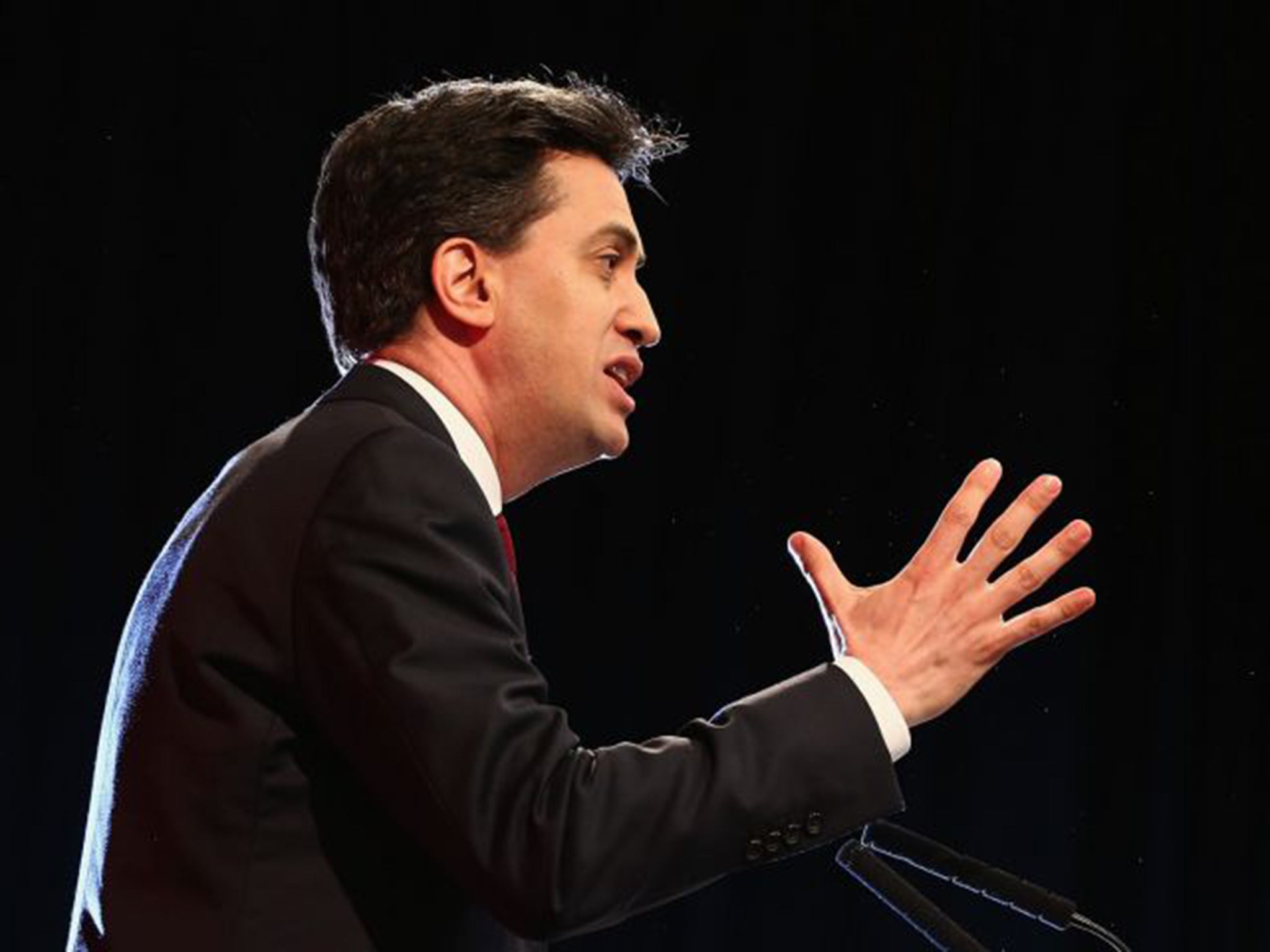Miliband announces tax relief reductions on higher earner pensions to pay for tuition fee cuts
The Labour leader said the cap on fees in England would be cut by a third in September 2016 at an annual cost of £2.7bn if his party wins this May’s election

Your support helps us to tell the story
From reproductive rights to climate change to Big Tech, The Independent is on the ground when the story is developing. Whether it's investigating the financials of Elon Musk's pro-Trump PAC or producing our latest documentary, 'The A Word', which shines a light on the American women fighting for reproductive rights, we know how important it is to parse out the facts from the messaging.
At such a critical moment in US history, we need reporters on the ground. Your donation allows us to keep sending journalists to speak to both sides of the story.
The Independent is trusted by Americans across the entire political spectrum. And unlike many other quality news outlets, we choose not to lock Americans out of our reporting and analysis with paywalls. We believe quality journalism should be available to everyone, paid for by those who can afford it.
Your support makes all the difference.Tax relief on pensions for higher earners would be reduced to pay for Labour’s plan to cut university tuition fees from a maximum of £9,000 to £6,000 a year, Ed Miliband announced today.
The Labour leader said the cap on fees in England would be cut by a third in September next year at an annual cost of £2.7bn if his party wins this May’s election. The tax relief on pensions enjoyed by people on annual incomes of over £150,000 would be reduced from 45 to 20 per cent. The amount of pension contributions attracting tax relief would be lowered from £40,000 to £30,000 a year and the lifetime limit would be cut from £1.25m to £1m.
Speaking in Leeds, Mr Miliband disclosed that higher earning graduates would pay a slightly higher rate of interest on their loans – 4 per cent instead of 3 per cent. Maintenance grants would be increased from £3,400 to about £3,800 a year --at a cost of £200m-- for students from families with an income of below the 40p income tax rate. These changes are designed to answer strong criticism from university vice-chancellors, the Conservatives and Liberal Democrats that Labour’s fees cut would help better off graduates the most because they are more likely to pay off their loans.
Labour sources said the reforms would make the system fairer and “more like a graduate tax in which those with the broadest shoulders carry more of the burden.”
The proposed curbs on pension tax relief will be controversial but Labour officials argued that very high earners should relieve the £44,000 average debt burden on graduates when they leave university. They said that the top 1 per cent of earners currently enjoy 7 per cent of pensions tax relief.
Accusing the Coalition of “betraying an entire generation,” Mr Miliband said: “These are fair choices that allow a better future for our young people, a better future for Britain. Britain must not penalise the young, if we’re going to prosper in the future. Our economy and our country can’t afford to waste the talent of any young person.”
The Labour leader added: “Let me say to Britain’s young people: I made you a promise on tuition fees. I will keep my promise. I don’t simply want to build your faith in Labour, I want to restore your faith that change can be believed. I owe it to you. We owe it to our country.”
Mr Miliband said: “Today is about our responsibilities to the young. And that is the concern of every generation, every parent, every grandparent, every person in our country, cares about the future of our young people. Today is the day we say: we will not make the young pay the price of hard times.”
Vince Cable, the Liberal Democrat Business Secretary responsible for higher education, attacked Labour's plan as "completely financially illiterate", warning it would "do great harm to universities and create a costly black hole in the national budget". He said it would benefit only the richest graduates such as investment bankers.
Greg Clark, the Conservative Universities Minister, warned: "Hardworking taxpayers will pay the price for a policy that will cause chaos. It will mean more borrowing, higher taxes, and will punish people who've worked hard, saved and done the right thing - just like Labour did last time. It is bad for taxpayers, bad for universities and bad for students."
Professor Sir Christopher Snowden, vice-chancellor of the University of Surrey and president of Universities UK, said: “Cutting the fees cap from £9,000 to £6,000 creates a £10bn funding gap over the next parliament. Such a shortfall, if not met in full from other sources of public finance, could cause significant damage to the economy, to social mobility, to student choice, and to our universities.
“Students are telling us they need assistance with living costs rather than tuition fees. Such significant new public funding would be better allocated on further enhancing support for students living costs, supporting innovation and university-business links, and increasing public funding for research, where we lag well behind our major competitors.”
Join our commenting forum
Join thought-provoking conversations, follow other Independent readers and see their replies
Comments